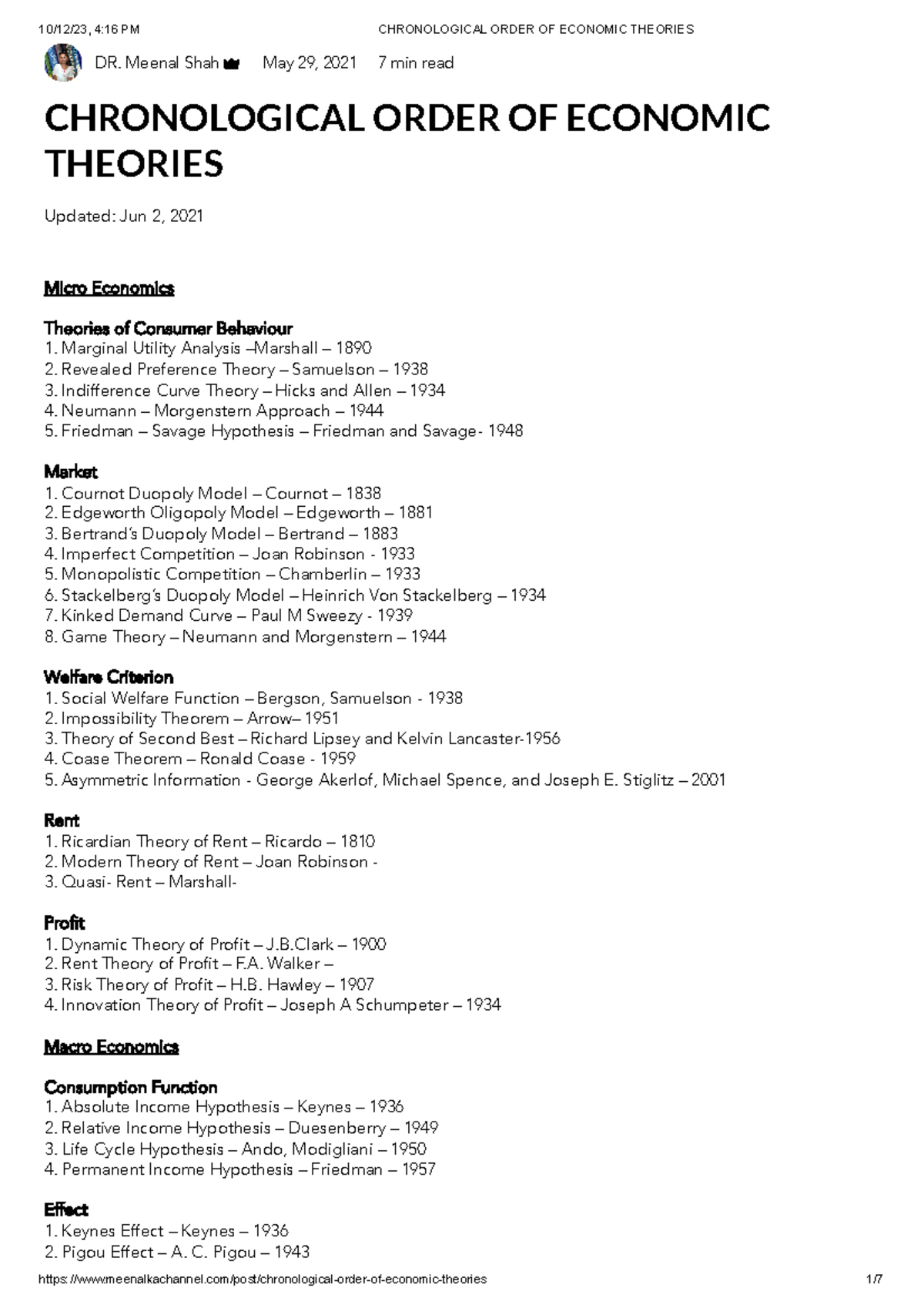Economic theories are essential in understanding how economies function and how different factors affect them. There are numerous economic theories that have been developed over the years by economists to explain various economic phenomena and guide policymakers in making informed decisions.
These theories range from classical theories developed by economists like Adam Smith and David Ricardo to modern theories such as Keynesian economics and behavioral economics. Each theory offers a different perspective on how economies work and what factors influence economic outcomes.
List of Economic Theories
- Classical Economics
- Keynesian Economics
- Monetarism
- Behavioral Economics
- Supply-Side Economics
Classical economics, developed in the 18th and 19th centuries, emphasizes the importance of free markets, limited government intervention, and the role of self-interest in driving economic decisions. This theory laid the foundation for modern economic thought and remains influential in economic policy debates.
Keynesian economics, developed by John Maynard Keynes during the Great Depression, focuses on the role of government intervention in stabilizing the economy. Keynesian economics advocates for government spending and monetary policies to stimulate demand and combat recessions.
Monetarism, popularized by economist Milton Friedman, emphasizes the importance of controlling the money supply to manage inflation and stabilize the economy. Monetarists argue that stable monetary policy is crucial for long-term economic growth and stability.
Behavioral economics, a relatively new field, combines insights from psychology and economics to understand how individuals make economic decisions. This theory challenges the traditional assumption of rationality in economic models and explores the impact of cognitive biases and heuristics on decision-making.
Supply-side economics focuses on stimulating economic growth by reducing barriers to production and increasing incentives for investment. This theory advocates for tax cuts, deregulation, and other policies aimed at boosting supply and promoting long-term economic growth.
In conclusion, economic theories play a crucial role in shaping our understanding of how economies function and guiding policy decisions. By studying and applying these theories, policymakers can make informed choices that promote economic growth, stability, and prosperity.
